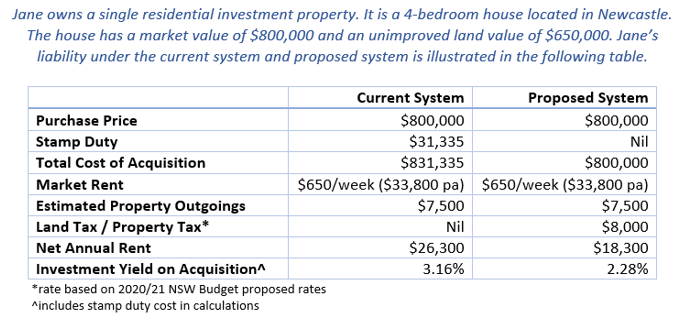While many market commentators are looking to the RBA to knock the edge off the current property boom, there’s another looming time bomb set to drop on unsuspecting buyers.
Property industry specialists are pointing to the NSW government’s proposed changes to stamp duty and land tax which will likely increase property ownership costs, destabilise the housing market and distort property prices rather than delivering the financial benefits the government is pitching to the public.
“The NSW Treasurer is currently reviewing the State’s system of collecting stamp duty and land tax, but the proposed system will distort property prices, introduce more complexity, and cause poor housing stock allocation,” said John Gilmovich, President of The NSW Property Owners’ Association of NSW.
“And with Victoria and Queensland watching by the sideline, there’s a high likelihood this will be rolled out to other States.
“The proposed changes will be a red tape minefield and are set to erode property owners’ wealth in an insidious way.
“We’re urging the government to consider industry feedback seriously, and we have made a submission outlining eight key areas of grave concern including the following points.
Increased costs to property owners
The NSW government is currently positioning the tax change as a benefit to buyers, but the opposite will be the case for typical buyers who aim to retain their property for longer than five years. For example, an average property with land value of $650,000 will result in an annual charge of $8,000 per year, as opposed to the current system where $31,335 stamp duty is required [see example below].

Tightening stock levels
The NSW government claims the changes are to encourage more freedom for property owners when they want to change locations for work purposes or for a lifestyle change.
“If you owned a property where you don’t have to pay a property tax, why would you move to a property where you would have to pay a property tax?” asked Mr Gilmovich.
“The system the NSW Government wants to introduce would reduce the amount of choice for those who don’t want to endlessly link themselves to a system where annual taxes can perpetually be increased, and this would mean a reduction in the number of people who would change residences,” he said.
A two-tiered system of ‘haves’ and ‘have nots’
Even basic modelling shows the new system will create a two tiered market and undermine one of the State’s biggest sources of independent wealth.
The proposed system is promoted as providing buyers with a choice to either opt-in to the property tax or remain with the current system of paying stamp duty and land tax over a set threshold.
“This will mean that over time, properties where stamp duty was paid upfront will command a higher price point because they will be property tax free,” said Mr Gilmovich.
“The whole proposal seems to be put forward by a Government with very limited understanding of the actual property market, or they’re just focused on pushing the change through by making it appear attractive.
“But all they’re doing is making the whole system more complex and introducing more ways to slug property owners with yet another bad tax in an area that is supposed to provide the foundation of our economic recovery.
About the author
Debra Beck-Mewing is the Editor of the Property Portfolio Magazine and CEO of The Property Frontline. She has more than 20 years’ experience in buying property Australia-wide and has extensive experience in helping buyers use a range of strategies including renovating, granny flats, sub-division and development. Debra is a skilled property strategist, and a master in identifying tailored opportunities, homes and sourcing properties that have multiple uses. She is a Qualified Property Investment Advisor, licensed real estate agent and also holds a Bachelor of Commerce and Master of Business. As a passionate advocate for increasing transparency in the property and wealth industries, Debra is a popular speaker on these topics. She is also an author, podcast host, and participates on numerous committees including the Property Owners’ Association.
Follow us on facebook.com/ThePropertyFrontline for regular updates, or book in for a strategy session to discuss your property questions.
Disclaimer – This information is of a general nature only and does not constitute professional advice. We strongly recommend you seek your own professional advice in relation to your particular circumstances.










